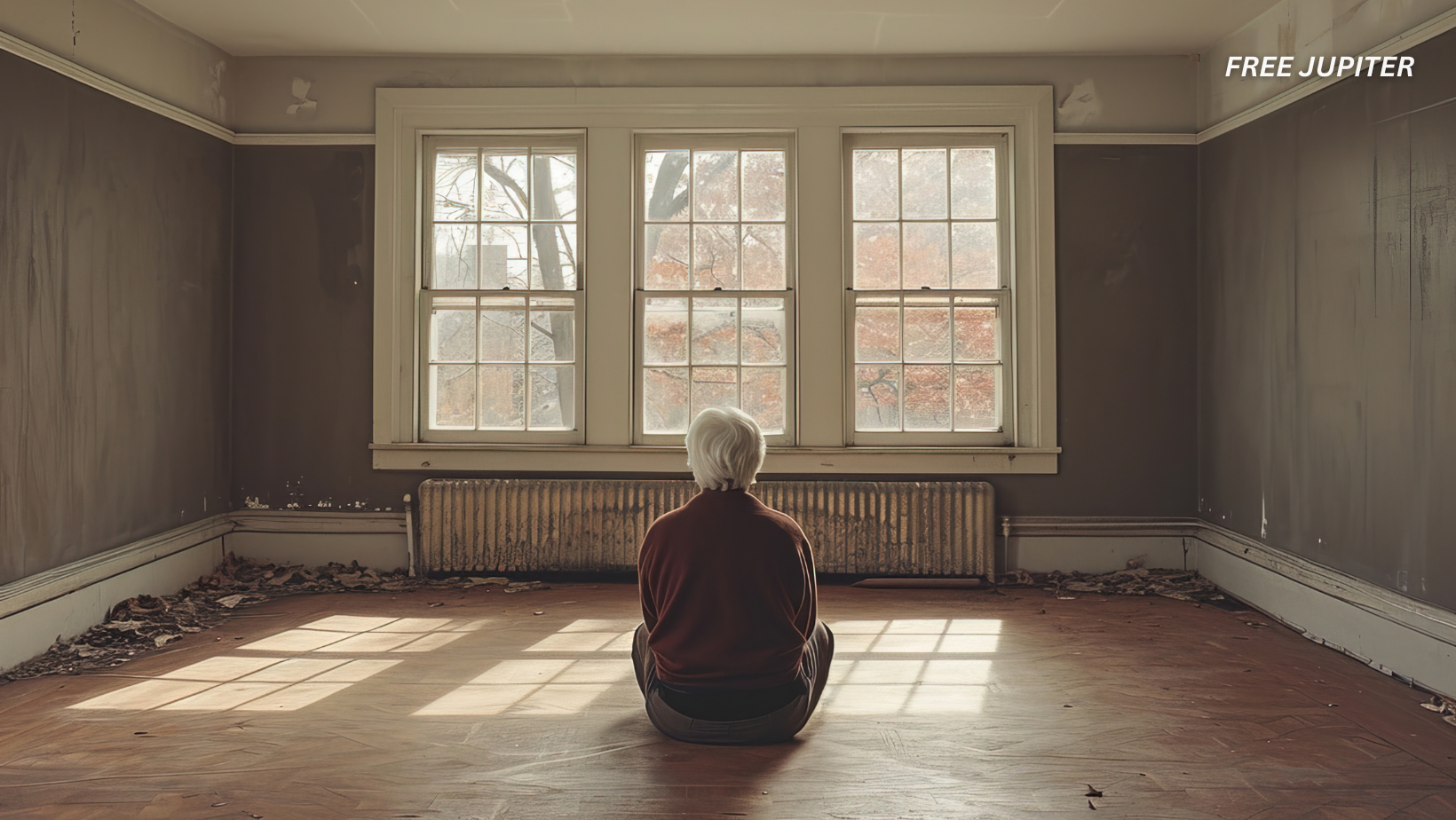When someone loses a life companion, the world can feel upside down. In the thick of sorrow and confusion, it’s all too easy to make choices that, in hindsight, don’t serve your best interests. Whether it’s the urge to change everything at once or the pressure to “move on” quickly, many find themselves wishing they’d taken a beat before acting. Here’s a deep dive into 17 common actions that those grieving often regret doing too soon-and why patience and self-kindness matter as you navigate this new chapter.
1. Masking Your Feelings
Trying to keep a stiff upper lip may seem noble, but bottling up sadness, anger, or confusion can lead to more pain later. Suppressing emotions can make the healing process longer and harder, as unaddressed feelings tend to resurface in unexpected ways. Finding safe spaces to express what you’re experiencing-whether with a friend, counselor, or support group-can be a vital step in adjusting to your new reality.
2. Pulling Away from Others
Grief can make solitude feel like a refuge, but withdrawing from friends and family often leads to deeper loneliness. Many later wish they’d stayed connected, even if only in small ways, to the people who care about them. Social support, even in tiny doses, can provide comfort and help you feel less alone.
3. Packing Up and Moving Out
The urge to leave behind a home filled with memories is understandable. But making a major move too soon can bring regret, especially if the decision is driven by pain rather than practical needs. Many who relocate quickly find themselves missing the familiar or facing unexpected challenges in a new place. Experts recommend waiting at least six months to a year before making big changes to your living situation.
Read more: Study Reveals: Your Body Remembers Trauma, Even After the Mind Has Let Go
4. Skipping Financial Organization
Managing money matters in the midst of grief is daunting. Some people avoid it entirely, only to find themselves facing bigger headaches later-missed deadlines, overlooked benefits, or costly mistakes. Others are pressured into quick decisions about investments or property, sometimes with negative consequences. Taking time to organize finances and seeking professional guidance can prevent future stress.
5. Diving into a New Relationship
The desire for companionship after loss is natural, but starting to date or form new attachments before you’ve processed your grief can lead to confusion or heartbreak. Relationships begun in the early stages of mourning may be more about filling a void than genuine compatibility, and many later wish they’d waited until they were emotionally ready.
6. Spending Without a Plan
Grief can make impulse spending tempting-whether it’s retail therapy, big-ticket purchases, or generous gifts to loved ones. But spending too much too soon, especially after receiving insurance payouts or other funds, can jeopardize long-term security. Many regret not pausing to create a budget or consult a financial advisor before making major purchases.
7. Giving Away Belongings Prematurely
Letting go of a late partner’s possessions can feel like a step toward healing, but acting too quickly often leads to regret. Items that seem painful to keep in the moment may become cherished reminders later. Taking time before donating or discarding belongings can help you make decisions you won’t second-guess down the road.
8. Neglecting Your Own Health
It’s easy to let self-care slide when you’re grieving, but ignoring your physical well-being can make everything harder. Skipping doctor’s appointments, neglecting nutrition, or abandoning exercise can have lasting effects. Many later wish they’d prioritized their health during this challenging period, as physical and emotional well-being are deeply connected.
9. Making Major Life Changes on a Whim
Big decisions-like selling a house, quitting a job, or moving across the country-can feel like ways to escape pain. But acting on impulse often leads to regret, as these choices are hard to reverse. Financial and grief experts advise waiting at least a year before making significant changes, giving yourself time to think clearly and adjust emotionally.
10. Letting Go of Daily Routines
Routines offer comfort and stability, but it’s easy to let them slip during periods of intense grief. Many later realize that maintaining simple habits-like regular meals, walks, or hobbies-could have provided a sense of normalcy and helped them cope better.
Read more: It’s Not Just You: 11 Reasons People Pull Away From Friendships With Age
11. Overlooking Hidden Sources of Income
In the aftermath of loss, it’s common to overlook pensions, insurance benefits, or other income sources. Failing to investigate these can lead to unnecessary financial stress. Consulting a financial expert or trusted confidant can help ensure you’re not missing out on resources that could ease your transition.
12. Rushing Back to Work
Returning to work might seem like a way to restore routine, but doing so before you’re emotionally ready can be overwhelming. Many wish they’d given themselves more time to grieve and adjust before resuming professional responsibilities.
13. Switching Jobs Too Soon
Changing careers or jobs can seem like a fresh start, but making such a move in the early stages of grief often leads to regret. It’s usually better to wait until you feel more grounded before making big professional changes.
14. Turning to Harmful Coping Mechanisms
Some people turn to substances or unhealthy habits to numb the pain. While this might offer temporary relief, it can create new problems and make healing harder. Seeking healthier outlets for grief-like talking, writing, or creative pursuits-can be more beneficial in the long run.
15. Trying to Fast-Forward Through Grief
There’s no shortcut through mourning. Rushing the process or pretending you’re “over it” can lead to unresolved feelings and delayed healing. Allowing yourself to move at your own pace, without comparing your journey to others, is crucial.
16. Letting Others Dictate How You Grieve
Well-meaning friends and family may offer advice or opinions about how you “should” feel or act. But grief is deeply personal, and only you know what feels right. Many regret letting others pressure them into decisions or timelines that didn’t fit their needs.
17. Blaming Yourself for the Past
After a loss, it’s common to replay memories and wonder if you could have done something differently. Self-blame can be a heavy burden, but it rarely leads to healing. With time, many realize that forgiveness-of themselves and the situation-is an important part of moving forward.
Why It’s Wise to Hit Pause
Across the board, experts and those who’ve experienced loss agree: patience is your ally. The first months after losing a partner are a whirlwind of emotions and practical demands. Making big decisions in this state can have lasting consequences, both financially and emotionally. Waiting six months to a year before making major changes allows your mind and heart to settle, giving you space to make choices that truly reflect your needs and wishes.
“Recovering from a loved one’s death is a double-edged sword. In addition to the emotional toll, you also face financial issues that can have a big impact on your lifestyle. Some widows have sold their homes-thinking it’s too much upkeep, or the memories are too painful; and later, they regretted making this decision.”
Read more: The Reason It Feels So Hard to Let Go of the Person Who Hurt You
Practical Ways to Navigate Early Widowhood
- Stay Connected: Even if you don’t feel like socializing, try to keep in touch with a few trusted friends or relatives.
- Seek Professional Guidance: Financial planners, grief counselors, and legal advisors can help you avoid costly or irreversible mistakes.
- Document Everything: Keep track of important documents, income sources, and decisions you make.
- Be Kind to Yourself: Grief has no set timeline, and it’s okay to move at your own pace.
- Delay Major Decisions: Whenever possible, put off big changes until you feel more stable emotionally and financially.
Looking Ahead: Hope Beyond the Haze
The period after losing a partner is one of profound transition. While it’s tempting to act quickly in hopes of easing the pain, patience and self-compassion are often the best guides. By avoiding hasty decisions and seeking support, you can navigate this challenging time with fewer regrets and more resilience. Remember, healing is a journey-one that unfolds in its own time, and that’s perfectly okay.










